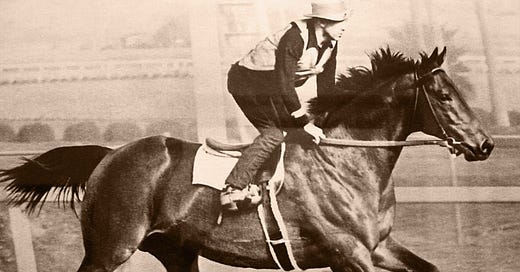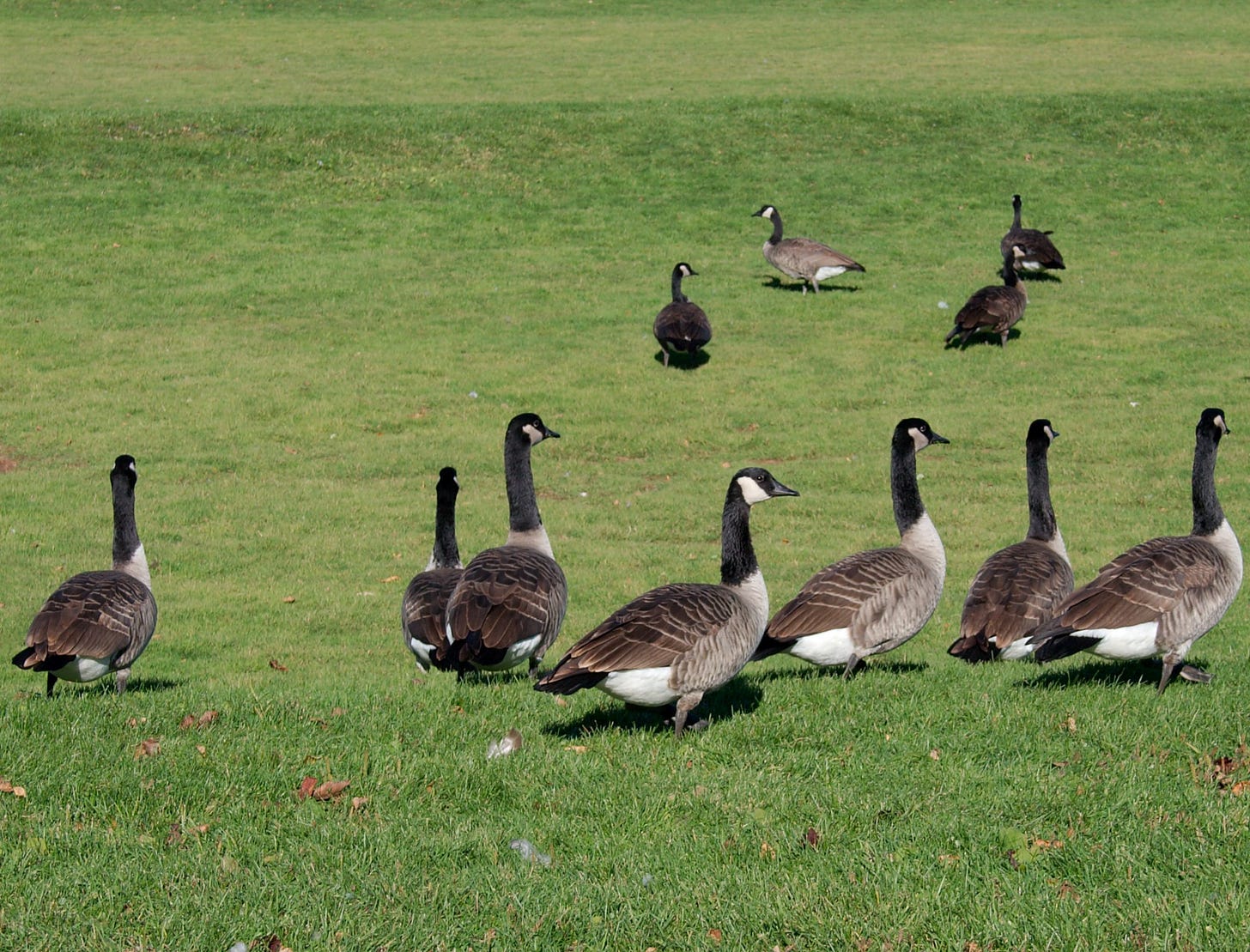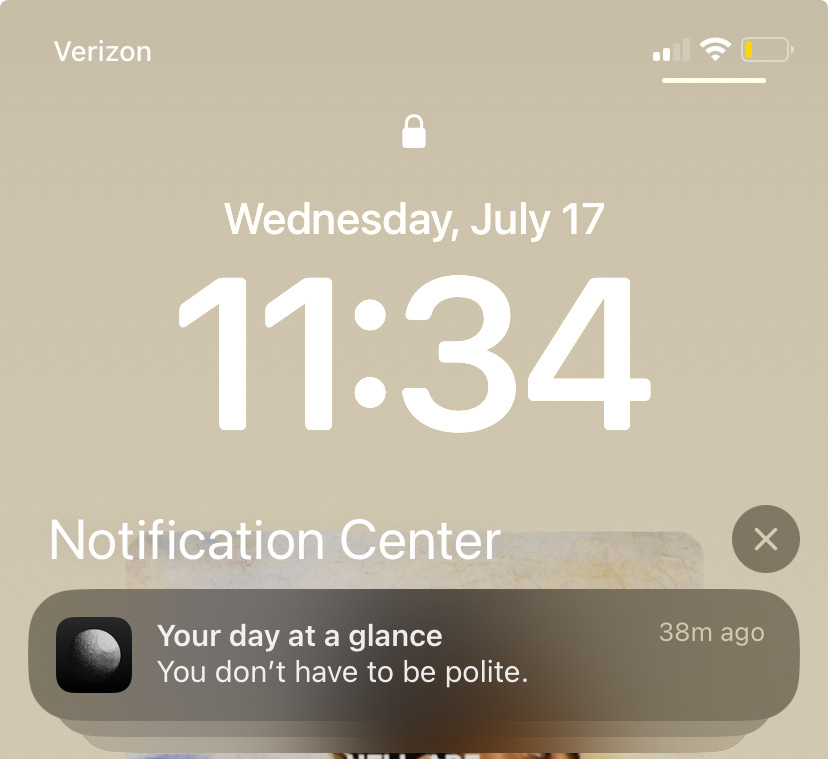NOTES 1: NYT BEST 100 BOOKS OF THE 21ST CENTURY IS DUMB & SILLY
RE: RANTING AND RAVING, LISTICLES, OUR 21ST CENTURY CANON, AND TAKING THE ENGAGEMENT BAIT
Mary commented on my last post asking for my take on the New York Times Best Books of the 21st Century list. Let me preemptively undermine myself by saying that a) I have no particular important critical perspective to bring to the table and b) I’ve only read 11 of the books on the list1. But before you hit me with the “who asked”, remember: Mary did!
Perhaps my expectations for the NYT list were the problem: I was hoping that a list of the best books of the century so far would reveal some kind of trend lines – in seeing the best our contemporary literature has to offer, maybe we could divine what our collective intellect has been fixated on these past few years. In short, I was hoping that this list – which was curated by vote of 500+ Important Books People – would represent the first steps toward creating our century’s canon.
Instead, the list was both pandering and out of touch, neglecting significant developments in literature while dropping in books that seem to have faded from the public consciousness for a reason. It felt a lot like a similar project from earlier this year, Apple Music’s Top 100 Albums of All Time2, or whenever Rolling Stone releases their pea-brained, industry-rotted takes in the form of a list3.
It’s easier to talk about what’s not on the list than what is, especially because the number of people who have read more than half of this list is vanishingly slim4. So let’s start with what’s excluded before we get to what’s really there.
There are huge holes in the list I want to get out of the way before I start: drama, as there are no plays on the list5; poetry, with only Claudia Rankine’s prose-y Citizen to represent the form; translated lit, which shows up scantily; children’s and young adult literature6; speculative fiction, which does appear but perhaps not as much as expected7; essay collections, of which I believe there’s only one; and anything I’d categorize as as critical or theoretical literature – that is, works of philosophy, academic monographs, collected or uncollected criticism, and things of that nature8.
In discussing one or the other missing genres, we get to the issue with arguing a ‘best of’ list: is this missing because the list is inadequate, or because the genre is? Let’s take poetry as an example – is verse absent because our dear literary voters aren’t up to the task, or has poetry ceased to be representative of ‘our times’?
This question of why something might be excluded from the list becomes more relevant as we narrow in on specific projects. The internet, for example, is relatively absent from this list; with no Lauren Oyler or Patricia Lockwood, should we assume that our brave voters aren’t capable of really getting to what a 21st-century novel is, or that the much-examined project of the ‘internet novel’ has been a failure?
I think it’s the former, and here’s why. An ombudsman: My perspective skews young, American, online. But I think the biggest issue is that this list seemed to be selected by a bunch of people with no idea of what literary trends hold any water in the 21st century.

Ottessa Moshfegh and Sally Rooney are cut from the list, as is Carmen Maria Machado. These authors are successful with the critics and the public, and have inspired their own acolytes who have gone on to be successful. They represent a selection of ‘hot girl lit’, generally characterized by a cool remove from their subject matter, biting prose, a lack of fear in the face of the gross and the shameful, alienation as a modus vivendi, and often a sort of oppressive interiority. The type of books Emrata poses with on Instagram.9
There is a certain genre I’d call ‘bleeding heart literature’ that’s absent from this list as well. By this I mean the stuff of Tumblr collages and Twitter bot-friendly quotes; that is, Ocean Vuong’s On Earth We’re Briefly Gorgeous, Mary Oliver’s Wild Geese, Richard Siken’s Crush. Books for the feral and yearning Mitski fan, etc. There’s nothing from the Literary It Girl, the BookToker, the /lit/ poster, the Twitterati. No books really about the internet, like Anna Wiener’s Uncanny Valley, or something like Shoshana Zuboff’s The Age of Surveillance Capitalism, or even something like Super Pumped or Bad Blood. Rewinding further, Dave Eggers and Sheila Heti, who both seemed very important indeed at the time, are not to be found; and there’s no one from the alt-lit era of the early 2010s.
Should the best books be what everyone’s talking about on the internet? Well, no, certainly not. But the list feels untethered from many of the major literary and intellectual discussions of the past few years – not just on message boards, but in classrooms, in lunchrooms, on blogs, in the pages of serious publications. My perspective on this is informed by what all my favorite critics tell me to think, sure, but also what I talk about with friends and what seemed to capture the attention of my classmates as a recent English major – like it or not, Oliver still has a chokehold on undergrad creative writing workshops.
Then what is on this list? Here are the authors that appear more than once by my count: Zadie Smith, Hilary Mantel, George Saunders, Elena Ferrante, Jesmyn Ward, Denis Johnson, Robert Bolaño, Alice Munro, Philip Roth, and Edward P. Jones.
Ferrante, Ward, and Saunders each have three books featured, so that’s basically a tenth of the list10. If you care about Goodreads, the highest rated book on the list is Fosse’s Septology, and the lowest is Gaitskill’s Veronica. The best represented year is 2015, and the years with the fewest books were 2009 and 2020 at one each. A nice surprise was the inclusion of the graphic novels Perseoplis and Fun Home. It skews fictional, but the nonfiction that’s included is generally reported or historical rather than biography, memoir, or essays.
There’s, uh, The Looming Tower by Lawrence Wright, which I have not read but is apparently a history of 9/11 published…five years after 9/11? The 2020s in general are fairly underrepresented (the most recent books are from 2022), but here is an interesting pick, which sneaks in at #76: Tomorrow, and Tomorrow, and Tomorrow by Gabrielle Zevin.
Is this what we have to offer up to the next generation when they ask who our great writers were? I guess more crucially, what are our ideas here? When I look back at the version of this list that came out in the Times in 2006, I can identify books that have real meat on their bones. The last book to top the 2006 list was literally Beloved by Toni Morrison, followed by a slurry of DeLillo/Roth/Updike, plus A Confederacy of Dunces. Not the most diverse list, but there are ideas at play in these books, real ideas that feel grounded in people’s real lives. To a degree, we can trace trends among these writers, feel what people were concerned about being represented in these books.
On our 2024 list, that seems less true. It feels as though some writers were included mainly because they were taking a victory lap: Didion gets shelved at a cool #12 for My Year of Magical Thinking, a memoir that leans into the personal and away from Didion’s cultural commentary. I liked this book. Thought it was great, even. But what does it reflect about living in the 21st century? Would I put it above Kiese Laymon’s Heavy, which feels more like a development of the memoir form? Part of what’s interesting about literature is the conversations books have with each other, and maybe the books on this are talking to each other, but the conversations they’re having are not that interesting. And maybe this will all be clearer in retrospect. Maybe, 25 years from now, this list will seem perfect, telling us all what we were really so worried about. But it doesn’t feel like that right now.
So, I decided to listen to the NYT Book Review podcast episode about the list, wondering if the critics were thinking about this the same way I was.11
Here were a few omissions they mentioned: Gone Girl, Prep, Seabiscuit, Kevin Kwan’s Crazy Rich Asians.
Wait, that’s what’s missing here? Seabiscuit? That’s the best we have to offer from this century so far, a heartwarming tearjerker about a racehorse almost sent to a glue factory?12
And, not to be pedantic, but Seabiscuit was released in 1999.
According to the critics, the NYT list might have reflected a bias toward the overly literary. In a way, I agree – there are some majorly popular books that are missing beyond just Rooney. The heavy hitters in pop nonfiction seem to be absent from this list: Freakonomics, The Immortal Life of Henrietta Lacks, Michael Lewis, Malcom Gladwell, whatever else galvanized the Radiolab x TED crowd. Beloved pulp like The Da Vinci Code and Girl With The Dragon Tattoo. Megahits like Kite Runner, Life of Pi, A Little Life, The Help13. But in general, it seems like this list missed a lot of major ‘literary’ picks.
And then there was another moment in the podcast which caught my attention, where the host (we’ll call them Critic #1) categorized Annie Ernaux as nonfiction, and another writer (Critic #2) said they might not exactly call The Years – which is written by a woman who famously eschews genre – nonfiction. This was a small interaction, but it’s my basic issue with the list.
Critic 2: I’m gonna quibble with you about whether [The Years is] nonfiction, but that’s a whole other podcast.
Critic 1: Gimme a little taste of the quibble!
Critic 2: Listen, I say this as somebody who’s so deep in the Ernaux weeds, but she coined her own sociological term for her literary project. It’s not quite autobiography and it’s not quite fiction, but out in the middle somewhere they meet.
Critic 1: I’m dealing in blunt categories here – we have fiction, and we have nonfiction. [Laughing] We do not deal in nuance on this podcast.
This last part is clearly a joke, and the generous (likely correct) reading is that this is all planned, the host is enticing the critic to say this so as to hint at what makes Ernaux’s work so necessary and interesting. He knows Ernaux, right? Like, there are six Nobel prize winners on the whole list – surely, as the books editor of a major publication, he’s familiar with Ernaux’s schtick.
Let’s assume that he is and move onto why this bothers me. I want to know more about what Ernaux's project means! Tell me why it matters! Spend 3 minutes talking about why autofiction is so relevant right now rather than just alluding to the idea that you believe Ernaux falls into that category and then moving on. Autofiction is kind of one of the big literary topics of the past few years. One of those things people who care about books don’t shut up about. And the editors know this, which is why they pinned an autofiction label on Ferrante14, but let’s talk about why this trend has relevance to our day and age!
That is, if you don’t care about why the books are on the list, why make it in the first place? That’s annoying. That’s irritating, to me. If this is just a list of books from this century arbitrarily put in an order, why does it even matter? Like, okay, according to everyone who matters, we should all be reading George Saunders and that’s it, good night.
But of course, the purpose of a list like this is for clicks, and if you don’t immediately recognize that, then you’re fooling yourself. NYT probably released this now to preempt the very same list coming out from dozens of other publications next year, when it’s actually 2025. This is a #SmartMove. You know, a #SmartBusinessMove. What we have on our hands are some tech-savvy journalists who know how to generate #Content and #Revenue in the flop journalism industry at the moment. Can you fault them for that? At the end of the day, we just gotta keep throwing rotten fruit onto the compost pile of online articles. That’s fine, I guess. Who cares. I guess I’ll go read the Neapolitan Quartet now.
BUT THAT’S JUST MY OPINION!
P.S. If you’re curious which book, in my opinion, absolutely should have been on this list and wasn’t, it would be Rachel Aviv’s Strangers to Ourselves: Unsettled Minds and the Stories That Make Us. A lot of people have tried to write books about the ongoing mental health crisis and fold under the pressure of culture-war squabbling and hand-wringing over kids these days. Aviv provides what is, in my mind, the most satisfactory answer thus far about the skyrocketing rates of anxiety and depression. We’re going to look back on this book as remarkably prescient for its time.
If this makes me seem only marginally more qualified, I will mention that I've read works by authors on this list which weren't featured — for example, I've read books by Maggie Nelson and Ben Lerner, but not specifically The Argonauts and 10:04.
I just went back to this and they put Take Care by Drake and Appetite for Destruction by Guns'n'Roses above A Love Supreme by Coltrane...lol, lmao. We were right to be so mad about this!
Jann Wenner, hit my line and let's talk.
Maybe this is just copium, sorry.
We can spar over what counts as a book, but it’s hard to say that plays have an indelible part in shaping literature. If we’re including poetry chapbooks we can most certainly include plays of the century. There have been a handful of super buzzy plays that seem like they could have made the list, like Will Arbery’s Heroes of the Fourth Turning or Fat Ham by James Ijames. Slave Play made Jeremy O. Harris a veritable superstar.
Alright, I’ll say it, since no one else has the balls: where was The Hunger Games? Or Harry Potter? While I’m not going to claim that either of these books necessarily measure up to the greatest of our literature, young adult truly came into its own as a genre in the 2000s.
No Jeff Vandemeer? No, uh, Haruki Murakami? I know Murakami isn’t strictly spec fic, but I wanted to wedge in my surprise at his exclusion from the list somewhere.
Big name philosophers, like Byung Chul-Han, Julia Kristeva, and (pardon me) Slavoj Žižek don’t make the list. Between essays/criticism/theory we also miss Eula Biss, Hilton Als, Robin Wall Kimmerer, Rebecca Solnit, Mark Fisher, Thomas Piketty, David Graeber, and DFW’s Consider the Lobster, which has the most entertaining 100+ page book review of a dictionary that I’ve ever read.
Here are some other authors who have been variously associated with ‘hot girl lit’ who don’t appear on the list: Mona Awad, Jenn Beagin, Allie Rowbottom, Sayaka Murata, Jia Tolentino, Michelle Zauner, Elif Batuman, Raven Leilani, Coco Mellors, Ling Ma, Jenny Offill and Gillian Flynn.
Honestly the list would have been much better if they only allowed one book in the top 100 per author — that would allow another 25ish authors to join in the fun.
I know these people are writers by trade, not podcasters, and I’m sure they’d come off better if someone had emailed them these questions with a few days to respond (and in fact they did do this, in another piece here). I also know they did not handpick the list, but I was interested in their takes as the people who shaped the project.
I have literally no right to shit on Lauren Hillebrand because I've never read Seabiscuit, so this is a take purely based on vibes. Was Seabiscuit a literary moment? Is that what I've been missing my whole life? Educate me in the comments, please.
Looking up bestsellers of all time made me think, wow, there was a real appetite for historical fiction about the Holocaust in the 2000s, huh. We've got The Book Thief, All The Light We Cannot See, The Boy in the Striped Pajamas, etc.
I’m not the first person to make this point, but whether having an anonymous author may ipso facto negate an autofiction label is another post.







